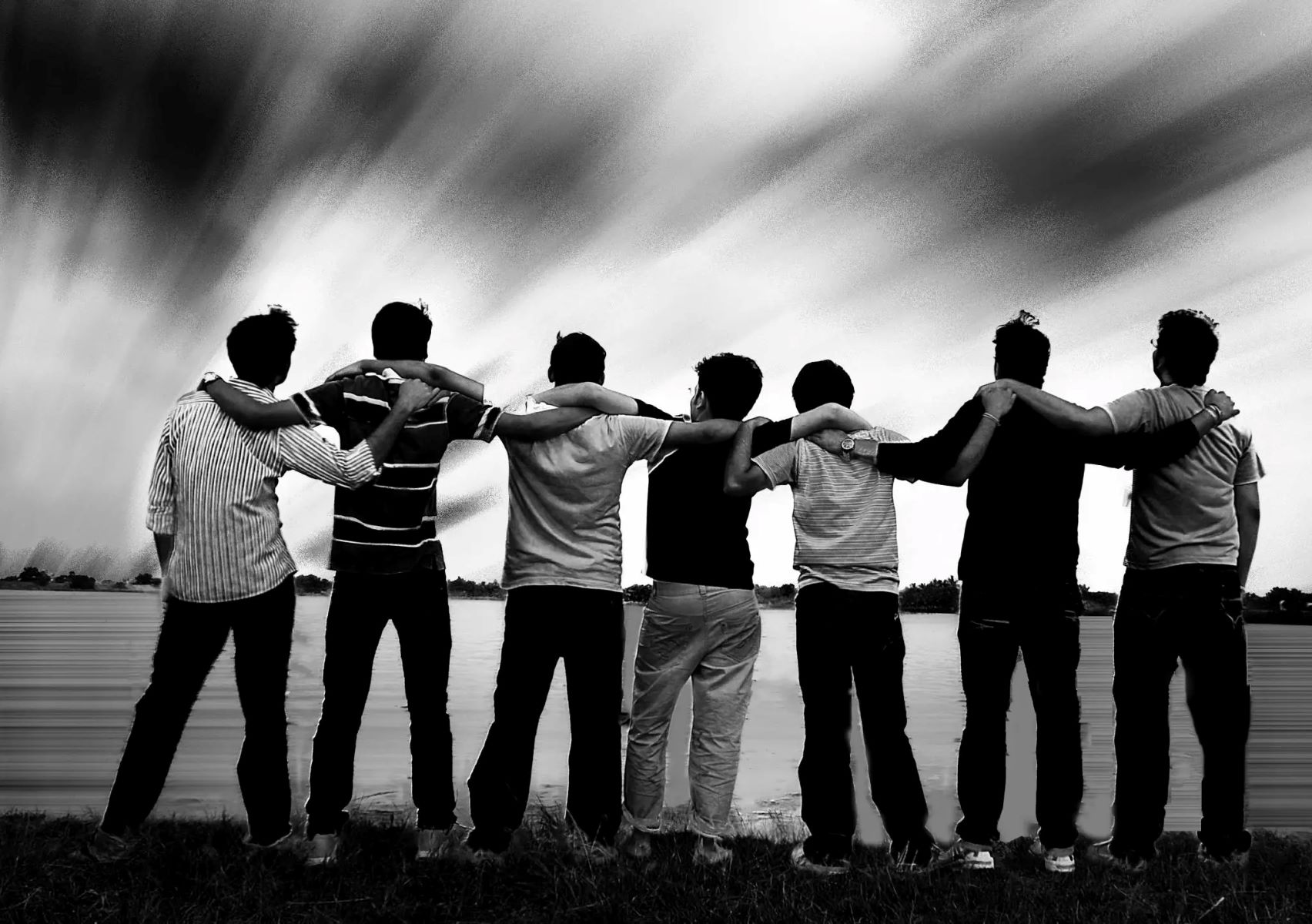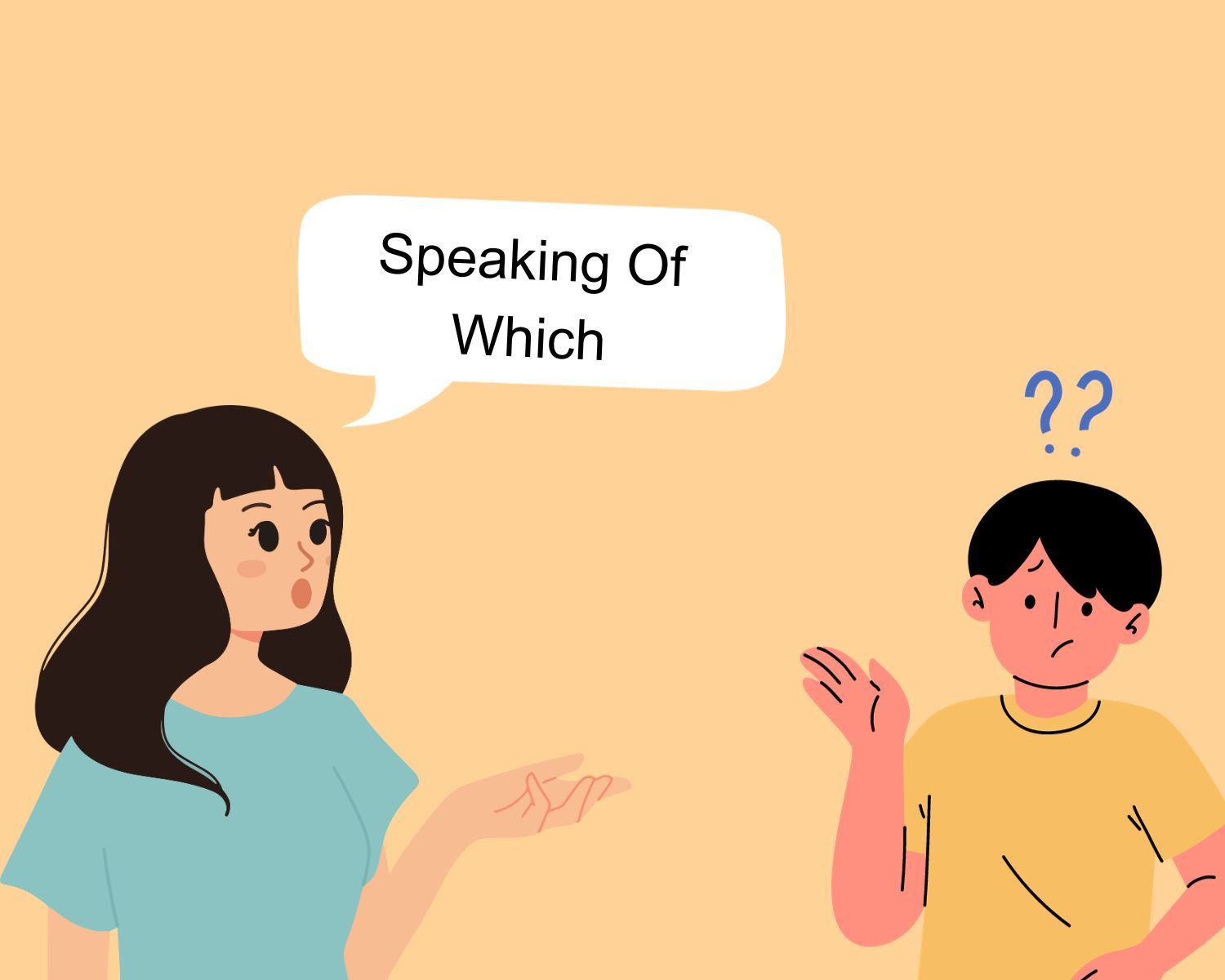Home>Opinion and Editorial>The Surprising Truth: Being A Friend To Everyone Means Having No True Friends!


Opinion and Editorial
The Surprising Truth: Being A Friend To Everyone Means Having No True Friends!
Published: January 18, 2024
Discover the surprising truth about being a friend to everyone and why it may mean having no true friends. An opinion and editorial piece that delves into the complexities of friendship.
(Many of the links in this article redirect to a specific reviewed product. Your purchase of these products through affiliate links helps to generate commission for Regretless.com, at no extra cost. Learn more)
Table of Contents
Introduction
In a world inundated with social media, networking events, and the ever-present pressure to be liked by everyone, the idea of being friends with everyone seems not only desirable but also necessary. We are bombarded with messages that encourage us to expand our social circles, connect with as many people as possible, and maintain a vast network of friends and acquaintances. It's almost as if the number of friends and followers we have has become a measure of our worth and success.
The allure of being everyone's friend is undeniable. It promises a sense of belonging, popularity, and acceptance. However, beneath the surface, this pursuit can lead to a paradoxical outcome: the more we strive to be friends with everyone, the more we risk diluting the authenticity of our relationships. In this article, we will delve into the surprising truth that being a friend to everyone may ultimately result in having no true friends.
As we navigate this exploration, it's essential to recognize the societal and psychological pressures that drive us towards this ideal. The fear of missing out, the desire for validation, and the belief that more friends equate to greater happiness are just a few of the factors that contribute to the pervasive notion that being everyone's friend is the ultimate goal. However, as we will discover, the quality of our connections far outweighs the quantity. It's time to unravel the illusion of being friends with everyone and uncover the profound significance of authentic relationships.
The Pressure to Be Everyone's Friend
The modern era has ushered in an unprecedented emphasis on social connectivity. From the pervasive influence of social media to the ubiquitous networking opportunities in both personal and professional spheres, the pressure to be everyone's friend has reached new heights. This pressure is fueled by a myriad of societal and psychological factors, each exerting its own influence on individuals seeking to navigate the intricate web of human relationships.
One of the primary drivers of this pressure is the fear of missing out (FOMO). In a digital landscape where every social gathering, milestone, and accomplishment is meticulously documented and shared, the fear of being excluded from these experiences can be overwhelming. The constant stream of curated images and carefully crafted narratives can instill a sense of inadequacy in those who perceive themselves as lacking in social connections. As a result, individuals may feel compelled to expand their circle of friends in an attempt to keep pace with the seemingly vibrant social lives of others.
Moreover, the pervasive desire for validation plays a pivotal role in perpetuating the pressure to be everyone's friend. In a culture where the number of friends, followers, and likes serves as a barometer of one's social standing, the pursuit of validation through social approval becomes a driving force. The quest for external affirmation can lead individuals to prioritize breadth over depth in their relationships, as the quantity of connections often takes precedence over their quality.
Furthermore, the pervasive belief that a larger social circle equates to greater happiness has cemented the notion that being everyone's friend is not only desirable but necessary for personal fulfillment. This belief is perpetuated by societal narratives that extol the virtues of extroversion and sociability, often overlooking the nuanced nature of human connection. As a result, individuals may succumb to the pressure to amass a multitude of acquaintances, inadvertently diluting the authenticity of their relationships in the pursuit of an illusory sense of contentment.
In the face of these relentless pressures, it becomes increasingly challenging for individuals to discern the genuine connections from the superficial associations. The allure of being everyone's friend, while compelling on the surface, conceals the profound impact of authentic relationships. As we delve deeper into this exploration, it becomes evident that the pursuit of universal friendship may lead to a paradoxical outcome: a dearth of genuine, meaningful connections.
The Illusion of Connection
The pervasive pressure to be everyone's friend has given rise to an illusion of connection that permeates modern society. This illusion, while alluring, obscures the profound distinction between superficial associations and authentic relationships. At its core, the illusion of connection manifests as a mirage, enticing individuals with the promise of widespread acceptance and belonging while masking the erosion of genuine human connection.
Amidst the relentless pursuit of expanding social circles, individuals may find themselves entangled in a web of fleeting interactions and surface-level engagements. The digital age, with its virtual networks and online personas, further perpetuates this illusion, blurring the line between true connection and mere acquaintance. The prevalence of social media platforms, while ostensibly designed to foster connectivity, often fosters a facade of intimacy that lacks the depth and sincerity inherent to genuine relationships.
The illusion of connection thrives on the superficial metrics of social validation, where the quantity of friends, followers, and likes supersedes the qualitative essence of human interaction. As individuals strive to amass a multitude of connections, the authenticity of these relationships becomes increasingly compromised. The pursuit of universal friendship inadvertently diminishes the value of meaningful, reciprocal bonds, relegating genuine connections to the periphery of one's social landscape.
Moreover, the illusion of connection perpetuates a cycle of transience, wherein the ephemeral nature of superficial associations undermines the cultivation of enduring, authentic relationships. The fleeting nature of casual interactions and surface-level engagements perpetuates a sense of disconnection, leaving individuals yearning for deeper, more meaningful connections amidst the vast expanse of superficial acquaintances.
In essence, the illusion of connection presents a paradox: the relentless pursuit of being everyone's friend ultimately leads to a dearth of genuine, meaningful relationships. As we unravel this illusion, it becomes increasingly apparent that the true essence of human connection transcends the superficial allure of universal popularity. It beckons individuals to seek depth over breadth, fostering authentic, reciprocal relationships that enrich the tapestry of human experience.
The pursuit of universal friendship inadvertently diminishes the value of meaningful, reciprocal bonds, relegating genuine connections to the periphery of one's social landscape.
The Importance of Authentic Relationships
Authentic relationships form the cornerstone of human connection, imbuing our lives with depth, meaning, and emotional resonance. Unlike superficial associations that merely skim the surface of interaction, authentic relationships are characterized by genuine intimacy, vulnerability, and mutual understanding. These relationships transcend the facade of universal popularity, emphasizing quality over quantity and depth over breadth.
At the heart of authentic relationships lies the profound sense of emotional resonance that permeates every interaction. Individuals engaged in authentic relationships experience a deep sense of connection and understanding, fostering an environment where vulnerability is embraced and empathy flourishes. This emotional resonance serves as the bedrock of authentic relationships, anchoring them in a shared understanding that transcends the superficial allure of universal friendship.
Moreover, authentic relationships provide a sanctuary for individuals to express their true selves without fear of judgment or pretense. In these relationships, vulnerability is not perceived as a weakness but rather as a testament to the depth of trust and intimacy that underpins the connection. The freedom to express genuine emotions, thoughts, and aspirations fosters an environment of authenticity and mutual support, nurturing the growth of the relationship.
Furthermore, authentic relationships engender a profound sense of reciprocity, wherein both parties actively contribute to the nurturing and sustenance of the connection. This reciprocity extends beyond mere exchanges of favors or material gestures; it encompasses the mutual investment in each other's well-being, growth, and fulfillment. Such relationships are characterized by a harmonious balance of giving and receiving, creating a dynamic interplay of support and understanding.
In essence, authentic relationships serve as a testament to the intrinsic value of genuine human connection. They offer a refuge from the superficial trappings of universal popularity, inviting individuals to embrace vulnerability, empathy, and reciprocity. In a world inundated with the allure of being everyone's friend, the importance of authentic relationships cannot be overstated. They enrich our lives, nurture our emotional well-being, and provide a profound sense of belonging that transcends the illusory pursuit of universal friendship.
The Power of Boundaries
The concept of boundaries holds profound significance in the context of human relationships, offering a transformative perspective on the dynamics of interpersonal connections. Boundaries serve as the invisible framework that delineates the space, autonomy, and emotional well-being of individuals within the context of their relationships. They are the proverbial lines that demarcate the intersection of self-respect, mutual understanding, and personal agency, fostering an environment where authentic connections can flourish.
At its core, the power of boundaries lies in its ability to safeguard the integrity of relationships. By delineating the emotional, physical, and psychological space of individuals, boundaries establish a framework for mutual respect and understanding. They serve as a testament to the inherent value of self-respect and autonomy, empowering individuals to define and assert their needs within the context of their relationships. This assertion of boundaries cultivates an environment of mutual respect, where the emotional well-being and agency of each individual are honored and upheld.
Furthermore, boundaries play a pivotal role in fostering clarity and communication within relationships. When individuals establish and communicate their boundaries effectively, it engenders a sense of transparency and understanding within the relationship. This clarity serves as a guiding light, illuminating the contours of mutual respect, empathy, and understanding. It enables individuals to navigate the intricacies of human connection with a profound sense of awareness and consideration for each other's needs and limitations.
Moreover, the power of boundaries extends to the preservation of emotional well-being and mental health within relationships. By delineating the limits of acceptable behavior, emotional engagement, and personal space, boundaries create a sanctuary for individuals to nurture their emotional resilience and self-care. This preservation of emotional well-being serves as a cornerstone for the cultivation of authentic, reciprocal relationships, fostering an environment where individuals can thrive and grow without compromising their intrinsic worth and dignity.
In essence, the power of boundaries transcends the realm of interpersonal dynamics, permeating every facet of human connection with its transformative influence. It underscores the intrinsic value of self-respect, mutual understanding, and emotional well-being, offering a paradigm through which authentic relationships can blossom and flourish. In a world where the allure of universal friendship often eclipses the significance of personal agency and mutual respect, the power of boundaries stands as a testament to the enduring strength and resilience of genuine human connections.
Read more: The Meaning Behind Being Called An “Opp”
Conclusion
In a world where the allure of universal friendship often overshadows the significance of authentic connections, it is imperative to recognize the profound impact of genuine relationships. The pursuit of being everyone's friend, driven by societal pressures and the desire for validation, often leads to the illusion of connection, wherein the depth and authenticity of relationships are compromised. However, amidst this pervasive narrative, the importance of authentic relationships and the power of boundaries emerge as guiding beacons, illuminating the path to meaningful human connection.
Authentic relationships, characterized by emotional resonance, vulnerability, and reciprocity, serve as a testament to the intrinsic value of genuine human connection. They offer a refuge from the superficial trappings of universal popularity, inviting individuals to embrace vulnerability, empathy, and reciprocity. The emotional depth and mutual understanding inherent in authentic relationships transcend the superficial allure of universal friendship, enriching our lives and nurturing our emotional well-being.
Furthermore, the power of boundaries, in delineating the space, autonomy, and emotional well-being of individuals within relationships, fosters an environment where authentic connections can flourish. Boundaries safeguard the integrity of relationships, preserve emotional well-being, and foster clarity and communication. They empower individuals to define and assert their needs within the context of their relationships, creating a framework for mutual respect and understanding.
In essence, the pursuit of universal friendship, while alluring on the surface, often leads to a paradoxical outcome: a dearth of genuine, meaningful relationships. The pressure to be everyone's friend, perpetuated by societal and psychological factors, can obscure the profound significance of authentic connections. However, by embracing the importance of authentic relationships and recognizing the transformative power of boundaries, individuals can navigate the complexities of human connection with a profound sense of awareness, empathy, and respect.
As we navigate the intricate web of human relationships, let us strive to cultivate authentic connections that enrich our lives, nurture our emotional well-being, and foster a profound sense of belonging. Let us embrace the depth and vulnerability inherent in authentic relationships, and let us honor the transformative influence of boundaries in safeguarding the integrity of our connections. In doing so, we transcend the illusion of being everyone's friend and embark on a journey towards genuine, meaningful human connection.














